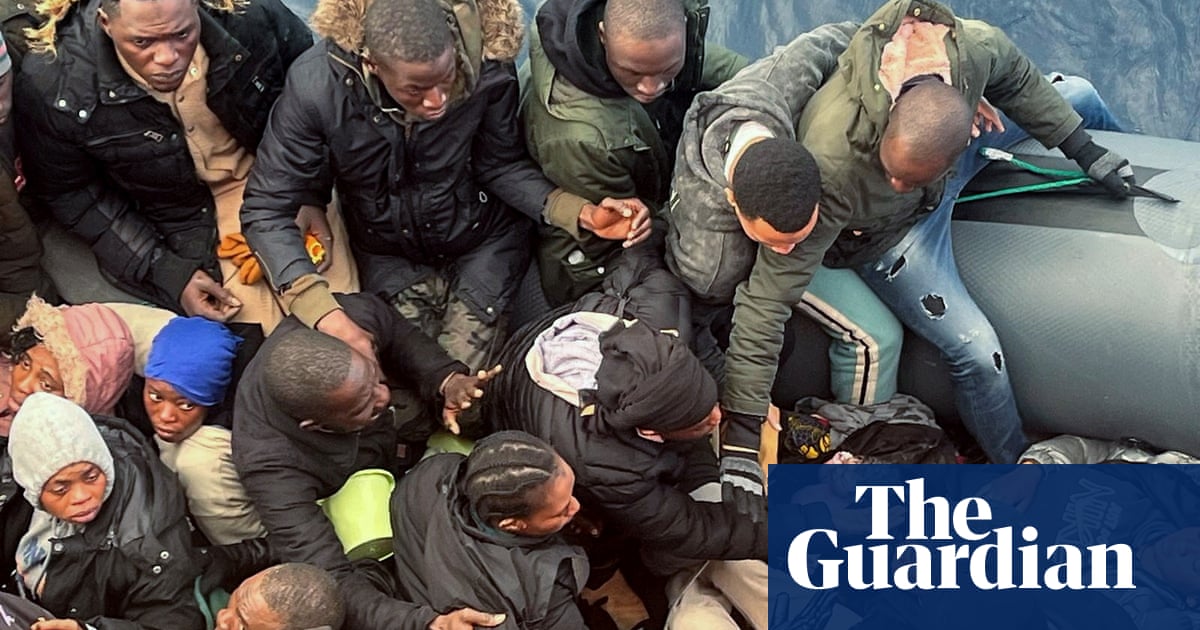A coalition of international aid organisations have accused Israel of ignoring a US ultimatum that threatened sanctions if Israel did not implement a series of measures to counter the acute humanitarian crisis in Gaza.
The 30 day ultimatum– due to expire on Tuesday or Wednesday – was delivered on 13 October, and almost none of its demands have been met, the humanitarian groups say.
It is unclear what measures Israel’s apparent failure to comply will trigger, but they may include a temporary halt to the supply of some munitions or other military assistance.
In an apparent last-minute concession, Israeli authorities announced an extension of the designated “humanitarian zone” in Gaza, adding inland areas which could partially relieve intense overcrowding and allow some displaced people to move away from the coast as winter approaches.
Aid officials in Gaza describe the situation in much of the territory, where more than 80% of the population of 2.3 million have been displaced and more than two-thirds of buildings have been destroyed or damaged in 13 months of war, as “apocalyptic”.
Israeli attacks in Gaza continued this week, killing at least 14 people, including two children and a woman, according to Palestinian medical officials.
A strike late on Monday hit a cafeteria west of the Gaza city of Khan Younis, killing at least 11 people, including two children, according to officials at Nasser hospital, where the casualties were taken.
Another strike early on Tuesday hit a house in central Gaza, killing three people including a woman, according to al-Awda hospital, which received the casualties.
Israeli forces launched a major operation in northern Gaza last month, sealing off three towns and ordering the evacuation of civilians. Military officials said they are fighting Hamas militants who have regrouped in the area.
The report listed 19 measures of compliance with the US demands. It said Israel had failed to comply with 15 and only partially complied with four.
“Israel not only failed to meet the US criteria that would indicate support to the humanitarian response, but concurrently took actions that dramatically worsened the situation on the ground,” the report said. “That situation is in an even more dire state today than a month ago.”
The US ultimatum, signed by Secretary of State Antony Blinken and Defense Secretary Lloyd Austin, called on Israel to allow a minimum of 350 truckloads of goods to enter Gaza each day, open a fifth crossing into the territory, ensure access for aid groups to northern Gaza and halt legislation that would hinder the operations of the UN agency for Palestinian refugees, known as Unrwa.
Global food security experts have warned of imminent famine in parts of northern Gaza. The amount of food aid reaching Gaza has dropped to the lowest level since December, official Israeli figures show, with only 8,805 tonnes of food aid crossing through Israeli checkpoints into the territory so far this month.
“The humanitarian catastrophe in Gaza is the result of systemic obstruction of aid, relentless bombardment, and an alarming failure to protect civilians,” said Katy Crosby, Mercy Corps senior director of US policy and advocacy.
“The worst-case scenario for northern Gaza is now a devastating reality … The US government must hold Israel accountable and take decisive action to ensure unrestricted aid delivery. Without this, preventable suffering and deaths will escalate and erode the United States’ moral and legal credibility,” Crosby said.
Israel said on Monday it had met most of the US demands and that a fifth crossing into Gaza will open within days, but would press ahead with its laws against Unrwa.
Matthew Miller, US State Department spokesman, said last week that Israel had made some progress, but needs to do more to meet the US conditions.
Israeli officials reject the charge that aid is deliberately restricted and accuse humanitarian agencies of failing to organise its distribution. UN agencies say ongoing fighting and lawlessness makes it difficult to collect and distribute aid on the Gaza side.
In October, 57 trucks a day entered Gaza on average, according to Israeli figures, and 81 a day in the first week of November. The UN puts the number lower, at 37 trucks daily since the beginning of October. Aid agencies say between 500 and 600 are needed to meet even basic needs in the territory.
“October was a very weak month,” said an Israeli official, who spoke under condition of anonymity in line with military briefing rules. “But if you look at the November numbers, we are holding steady at around 50 trucks per day to northern Gaza and 150 per day to the rest of Gaza.”
Israeli officials estimate as much as 40% of aid is stolen on some days. UN workers in Gaza said around a third of the aid was looted.
Israel has also announced additional steps, including connecting electricity for a desalination plant in the central Gaza town of Deir al Balah, and efforts to bring in supplies for the winter. On Tuesday, Coordination of Government Activities in the Territories (Cogat), the Israeli military body in charge of humanitarian aid to Gaza, announced a “tactical” delivery of food and water to Beit Hanoun, one of the hardest-hit towns in northern Gaza.
The war began last year when Hamas-led militants stormed into southern Israel, killing more than 1,200 people, mostly civilians, and abducting around 250 people. Nearly 100 hostages are still inside Gaza, at least a third of whom are believed to be dead.
Israel’s bombardment and ground invasion have killed over 43,000 Palestinians, more than half of them women and children, according to local health authorities, who do not say how many of those killed were militants.

.png) 1 month ago
10
1 month ago
10













































